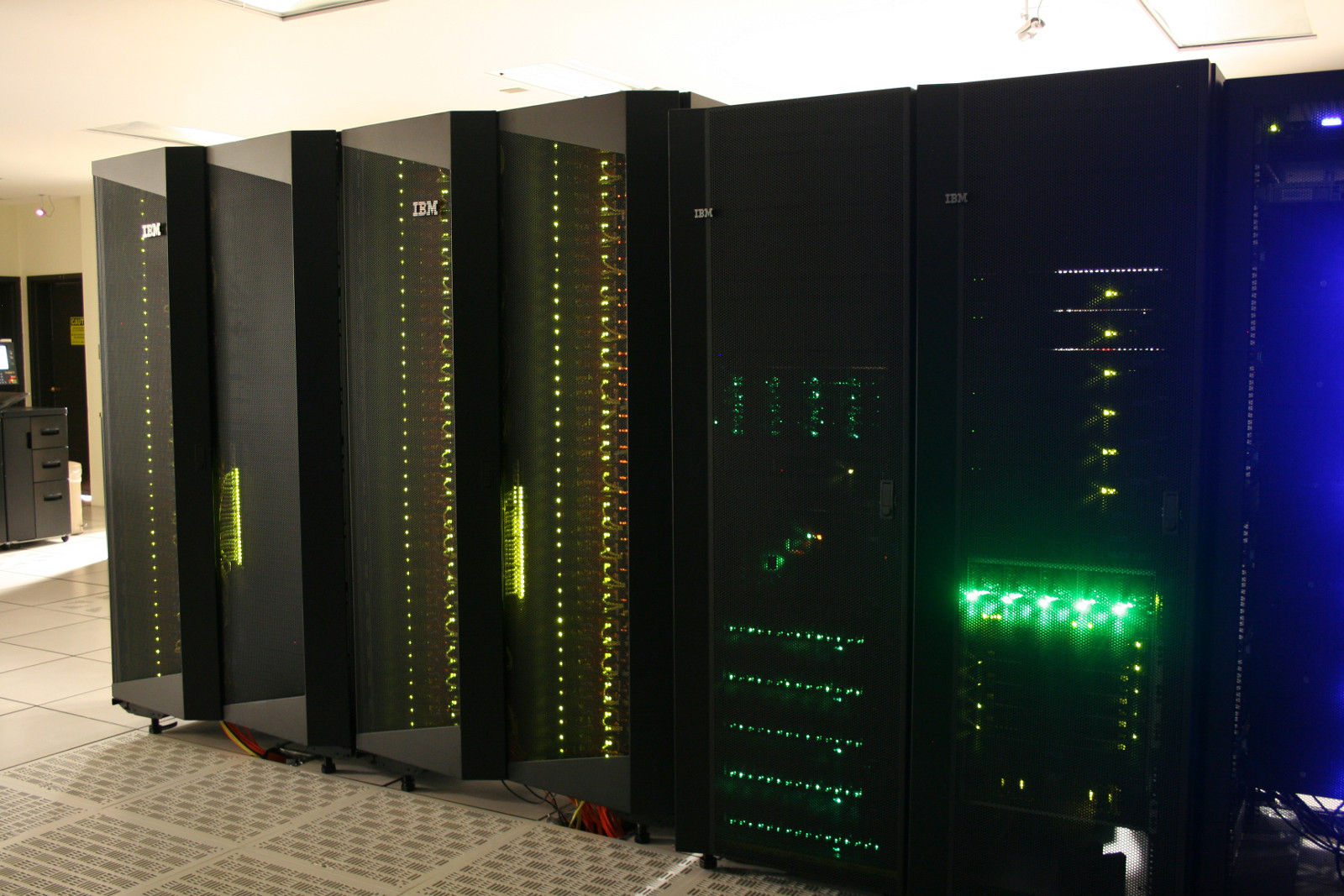Arkansas High Performance Computing Center Passes 1 Million Jobs

Razor II is the flagship supercomputer at the Arkansas High Performance Computing Center.
FAYETTEVILLE, Ark. – The Arkansas High Performing Computer Center has surpassed 1 million jobs performed by researchers on the University of Arkansas campus and beyond.
“This is a significant milestone,” said Jeff Pummill, co-interim director of the center. “A million is a very substantial number, one that reflects all of the times our users submitted a job and hit ‘go.’ Some of our users submit hundreds jobs at once that won’t take very long to compute, while others can take weeks to finish. There are polar extremes to the computations our supercomputers perform on a daily basis.”
The Arkansas High Performance Computing Center began keeping a log of its jobs in 2007 with the activation of the supercomputer Star of Arkansas, Pummill said. Star at one time was the most powerful academic supercomputer computer in the state and was ranked among the world’s fastest 500 computers.
In early 2011, the Arkansas High Performance Computing Center activated Razor, its flagship supercomputer. In 2012, Razor underwent a substantial upgrade – funded by a $900,000 grant from the National Science Foundation – that significantly increased its computational ability, and is now known as Razor II.
The Arkansas High Performance Computing Center, founded in 2008, supports research in about 30 academic areas at the U of A, including computer science, integrated nanoscience, computational chemistry, computational biomagnetics, materials science and spatial science, among others.
Faculty and students from several departments at the university use high performance computing resources to explore the fundamental properties of chemicals and nanomaterials, complex problems in phylogenetics and genomics, new methods of detecting breast cancer, the organization of large sets of spatial data and many other specialized problems.
The researcher who ran the 1 millionth job was Changsong Xu, a member of the computational condensed matter physics group at the U of A led by Laurent Bellaiche, Distinguished Professor of physics in the J. William Fulbright College of Arts and Sciences. Xu, a former visiting doctoral student at the university who continues to collaborate with the group from China and run simulations on Razor, submitted the job on Jan. 4.
“The Arkansas High Performance Computing Center has been instrumental to our group since it allows us to computationally tackle many difficult studies on complex problems,” Bellaiche said. “Without such resource, we could not survive as a computational research group.”
About 250 users across campus are actively utilizing the Arkansas High Performance Computing Center for their projects. The most active high-performance computing user on campus is Tomasz Janowski, a research associate professor in the Department of Chemistry and Biochemistry.
“My research focuses on high-quality quantum mechanical calculations for large molecular systems,” Janowski said. “These calculations involve electron correlation that is obtained from established science. Electron correlation is necessary to understand intermolecular interactions between so-called weak interacting systems, where the attraction forces arise from purely quantum mechanical effects and cannot by simply understood based on notions of classical physics.
“While the forces are indeed weak for small molecules and noble gas atoms, they tend to accumulate super-linearly for systems larger than 20-30 atoms, being even larger between graphene sheets and in 3-D systems such as hydrophobic centers of proteins,” he said. “Using high-performance computing architecture, distributed memory parallelism and new methodologies it is now possible to calculate energies involving dispersion interactions for systems of this magnitude.”
Contacts
Jeff Pummill, co-interim director
Arkansas High Performance Computing Center
479-575-4590,
jpummil@uark.edu
David J. Chaffin, co-interim director
Arkansas High Performance Computing Center
479-575-7669,
dchaffin@uark.edu
Chris Branam, research communications writer/editor
University Relations
479-575-4737,
cwbranam@uark.edu
Headlines
U of A's Inspirational Chorale Makes Its Carnegie Hall Debut
The U of A's Inspirational Chorale took center stage at Carnegie Hall in March, performing under the direction of professor Jeffrey Murdock to a packed audience at the iconic Stern Auditorium.
The State of Economics With Mervin Jebaraj Set for June 5
U of A economist Mervin Jebaraj will analyze state's economic trends and regional issues in an upcoming talk. Preregistration is required by May 31.
Faculty Demonstrate Dedication to Student Success Through Teaching Credentials
Eight faculty members from across the U of A have earned the prestigious Association of College and University Educators certification in Effective College Teaching.
Artificial Intelligence, Machine Learning Boost Arkansas Animal Science Research
Aranyak Goswami, a bioinformatics specialist, will work with three different departments to boost the research arm of the U of A System Division of Agriculture.
College of Education and Health Professions Doctoral Student Picked for Grosvenor Fellowship
Jessica Culver, a doctoral student in the College of Education and Health Professions Adult and Lifelong Learning program, has been selected as a member of the 2024 Grosvenor Teacher Fellowship.




